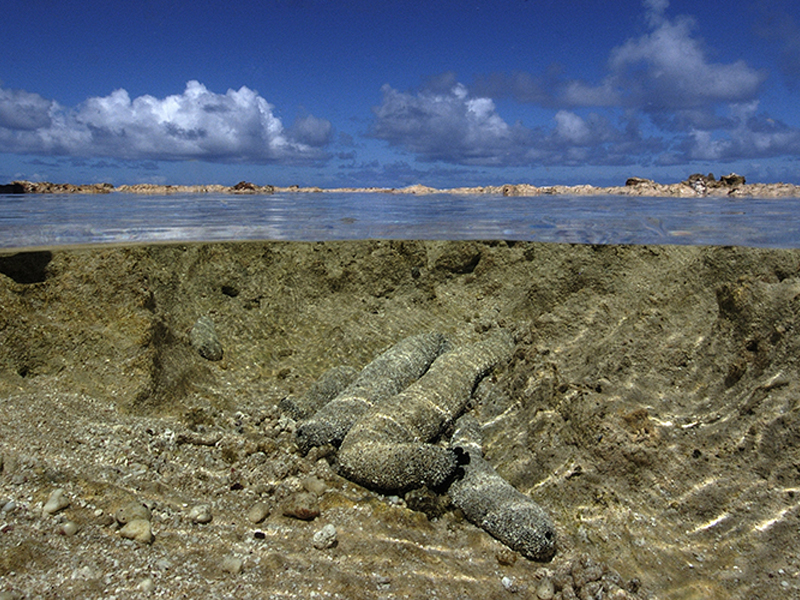Identifying the physiological responses to extreme environmental changes in native Hawaiian sea cucumbers found in traditional fishponds
PRINCIPAL INVESTIGATOR: Andre Seale
Sea Grant Graduate Fellow: Tyler Goodearly
Research Track: Aquaculture

In Hawaiʻi, there is rising market demand for locally-produced seafood. For the past several years, revitalization and restoration of traditional Hawaiian fishponds, or loko i‘a, have been ongoing. One challenge for successful fishpond restoration is the incomplete understanding of the changes to pond biological resources in response to environmental changes and managed production strategies. Fishponds are typically located in coastal environments that are especially susceptible to increases in extreme climatic events that can rapidly change water conditions, especially water temperature and salinity. Sea cucumbers present a unique candidate for the production of a high-value, low-trophic species which may improve fishpond ecosystems by enhancing nutrient cycling. This project aims to optimize culture conditions and best management strategies for two native Hawaiian sea cucumbers by characterizing and testing the salinity and temperature tolerance of these species, in partnership with local fishpond practitioners and sea cucumber producers.

